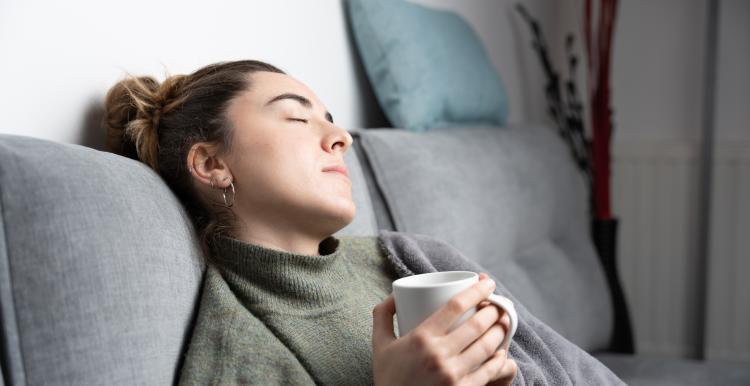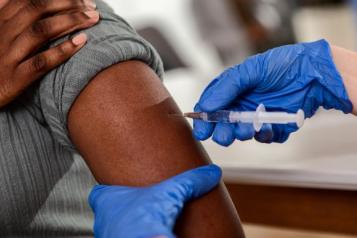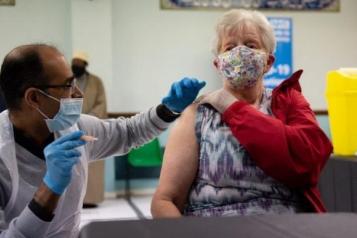What is long-covid and what support is available?

After contracting COVID-19, it can take up to 12 weeks for your symptoms to disappear and for you to fully recover from the virus.
For some people, COVID-19 can cause symptoms that last weeks or months after the infection. Symptoms that go on longer than 12 weeks are known as ‘Long Covid’.
What is Long Covid?
To learn more about the symptoms of Long Covid, visit our advice article, which contains everything you need to know about this new condition.
What are the symptoms of Long Covid?
There are wide-ranging symptoms of Long Covid, making it difficult for doctors to diagnose. Everyone’s condition and symptoms are slightly different.
The main symptoms are the same as COVID-19:
- Fatigue
- Shortness of breath
- Changes to the sense of taste or smell
- Difficulty concentrating
- Muscle ache
- Headache
- Cough
- Memory Loss
- High temperature
- Sore throat
Additional symptoms fall into one of three main categories:
Physical symptoms
- Joint pain
- Chest pain or tightness
- Breathlessness
- Heart palpitations
- Dizziness
- Pins and needles
- Tinnitus or earache
- Feeling sick, diarrhoea, stomach aches or loss of appetite
Cognitive issues
- Memory problems
- Concentration problems (‘brain fog’)
- Depression and anxiety
Fatigue
- Extreme tiredness
- Low energy
- Difficulty sleeping
- Needing a lot more sleep than normal
When should I contact my doctor?
The NHS suggests you contact your doctor if you are worried about continuing symptoms more than four weeks after having COVID-19.
To contact your GP surgery, you can:
- Visit their website
- Call them
- Use the NHS app
Your doctor must rule out other causes for your symptoms and may wish to conduct some tests before reaching their diagnosis. These tests can include blood tests or an X-ray.
How will I know if I have Long Covid?
Unfortunately, there is currently no standard test for Long Covid. People suspected of having Long Covid are diagnosed by ruling out the more common causes of their symptoms.
What causes Long Covid?
Long Covid is a relatively new condition, so we don’t know very much about its causes yet. Several different things are likely to cause such a wide range of symptoms in people.
Who is most likely to get Long Covid?
We have only recently started tracking Long Covid. However, over 1.8 million people in the UK have symptoms for over four weeks.
The condition is most common in:
- 35 to 49 year-olds
- Women
- People with underlying health conditions which limit their normal activity levels
- People working in health, social care or education
- People who are living in poorer areas across the country.
Tips for managing Long Covid symptoms
There are small things you can do to manage your symptoms. Ensuring you get enough sleep and eating a healthy, balanced diet are two important ways to look after yourself.
It’s also essential to conserve your energy. To ensure you don’t burn out before the end of the day, try following the three P’s: pace, plan and prioritise.
Pace
- Be kind to yourself and allow yourself to slow down.
- Break activities into smaller tasks and spread them out throughout the day.
- Stop when you get tired; don’t push yourself until you are exhausted – you’ll recover quicker this way.
- Build rests into your tasks and plan breaks between activities. Resting is vital to recharging your energy.
Plan
- Look at the activities you need to do on a daily and weekly basis and spread them evenly across the week.
- Consider which activities will tire you out the most, and ensure these don’t happen on a busy day.
- Avoid planning activities at times of day when you are often more tired.
- Think about whether there are ways you can adapt tasks to make them more accessible – for example, sitting down whilst doing the washing up or getting equipment to help you around the home.
Prioritise
- Some daily activities are necessary, but others aren’t. There might be some tasks you can stop, do less often, or ask someone to help you until you feel better.
- Make sure you balance necessary tasks, like washing, and the things you enjoy doing, such as walking the dog or meeting friends.
- Start the day by asking yourself:
- What do I need to do today, and what do I want to do today?
- What can I put off until another day?
- What can I ask someone to help me with?
Do I need to attend a Post COVID Service?
Post-COVID Services were launched in December 2020, bringing together a wide range of healthcare professionals, including doctors, nurses, physiotherapists and occupational therapists.
Your COVID Recovery
The NHS has launched an online resource called ‘Your COVID Recovery’,


